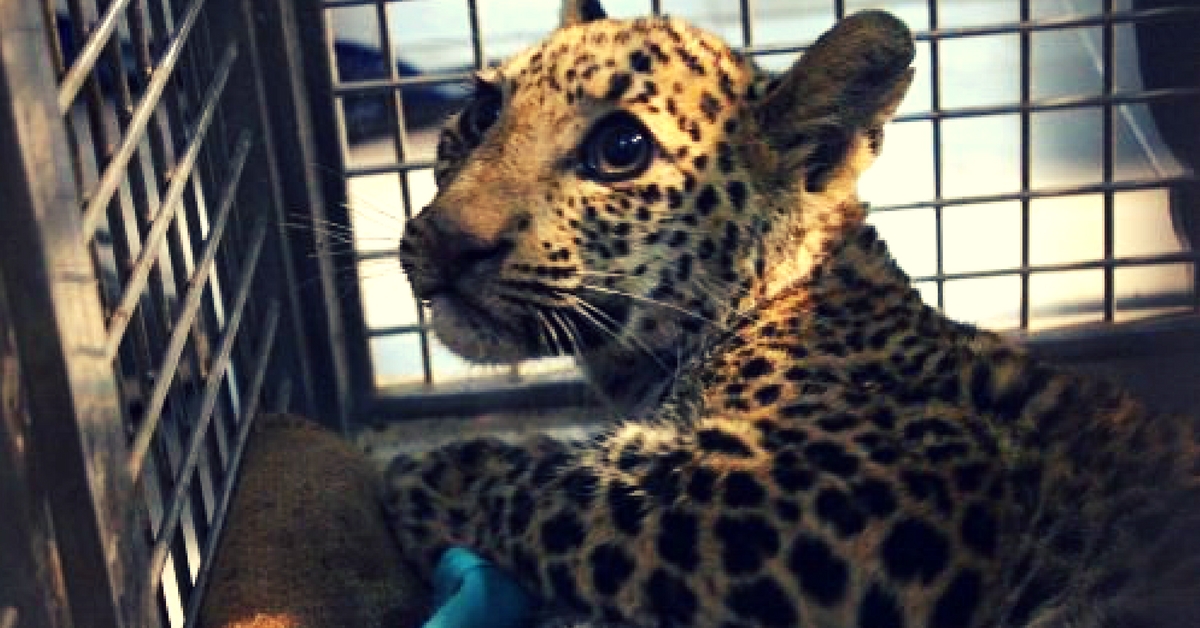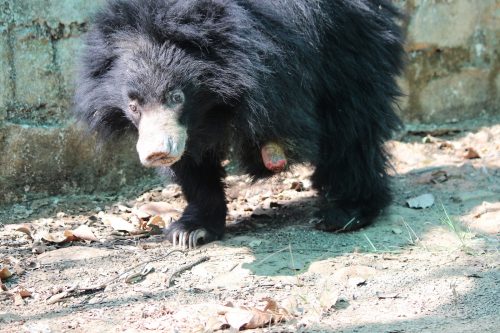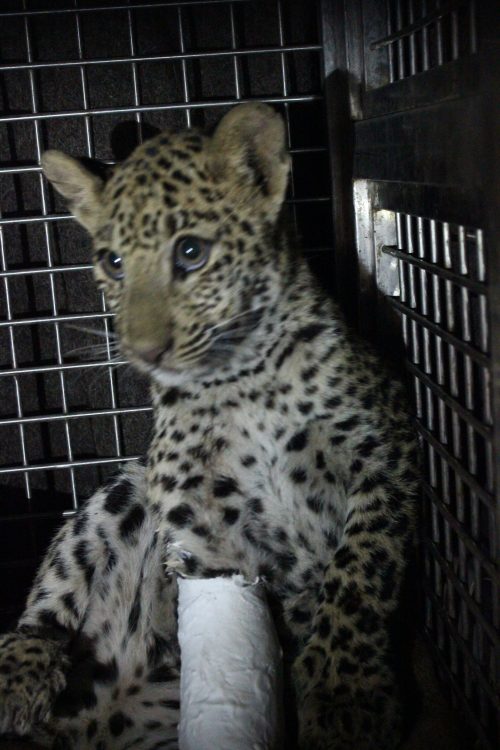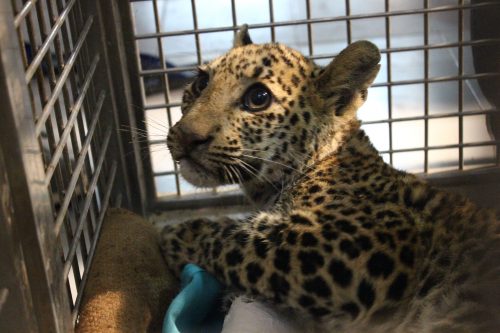TBI Blogs: Why a Petition Signed by 9,600 Animal Lovers Against a Retail Giant Is a Big Win for Conservation
A petition started by an NGO has led to a popular e-commerce platform doing its bit for wildlife conservation by refusing to sell snares & traps.

A petition started by an NGO has led to a popular e-commerce platform doing its bit for wildlife conservation by refusing to sell snares & traps.
In recent years, illegal poaching and trade of wildlife species in India has risen alarming levels. This, despite having a strong legal framework to protect our wildlife species and to regulate and restrict the flow of wildlife trade. A large quantity and variety of wildlife products that have little or no demand in India are in fact smuggled to international markets, where the demand for such items is extensive. This makes India a hub for illicit wildlife trafficking.
Between 1989 and 1993, 184 rhinos were reportedly killed at the hands of poachers in Kaziranga National Park. In the first six months of 2016 alone, poachers had killed and sawed off the horns of nine rhinos residing in Kaziranga.
Based on recent reports, India ranks second after Indonesia on the global list of shark fishing nations. A growing demand for shark body parts such as meat for local consumption, fins for export and industrial use of skin and cartilage is rapidly pushing this species to the brink of extinction. Latest data also shows that over 30 tigers have been poached for their claws, skin, bones, canines and paws, in some of the country’s most protected forest reserves.
In February 2016, wildlife conservation NGO, Wildlife SOS rescued a brutally maimed and abandoned three month old sloth bear cub named Rose.
The young bear had lost her left fore-limb to a poacher’s snare, leaving her severely injured and inevitably handicapped for the rest of her life.

As an organization that focuses on helping wildlife, over the years, they have been witness to animals under siege in a myriad of different ways, all as a consequence of human wildlife conflict. However, witnessing the trauma of this bear cub solidified their conviction that snares are one of the cruellest human-created threats to wildlife; it is distressing to imagine the millions of animals that fall victim to these barbaric devices every year. Only a small percentage of these animals survive the horrors of snares and jaw traps, and the deaths of a majority of these victims of poaching go undocumented.
Rose is currently undergoing veterinary treatment, but will never be fit enough to be released back into the wild. Animals caught in snares and traps often struggle for hours—in some cases, days—before succumbing to thirst, hunger, strangulation, internal injuries and even predation from carnivores. The animals that manage to escape often succumb to their injuries and die days or weeks after their painful escape.
And this is not to mention the agony, terror and anxiety that any trapped animal will experience.

In an anti-poaching drive conducted by the Karnataka Forest department officials in 2012, 80 snares, presumably laid down for trapping tigers, were seized from protected forest covers of Bandipur and Nagarhole National Parks. In a horrific incident in 2014, a four year old leopardess died after getting caught in a poacher’s snare in Tamil Nadu. The big cat had suffered a brutal and painful death; reports revealed that in its struggle to free itself from the strong cables, the animal’s bones were completely crushed.
Earlier this year, several poachers were caught hunting migratory birds at prominent bird habitats across Maharashtra, after a group of students discovered an Indian Cormorant caught in a wire snare in the Tadoba-Andhari Tiger Reserve.
Following Rose’s heart-breaking rescue, the organisation started a search to identify all platforms where snares and traps were being sold. There is a constant struggle by the Indian government and several wildlife conservation organisations to protect our wildlife from such horrific fates, so it came as quite a shock for the organisation to discover that a reputable e-commerce brand was offering an array of wildlife trophies – alligator heads, preserved snakes, protected species of starfish, seahorses, butterflies and rare beetles – along with dangerous trapping and killing devices like jaw traps, wire snares and manuals on hunting on their website.
Traps and snares are indiscriminate killing products that will kill anything from a hare or a porcupine to a leopard or a tiger! Yet, these devices were not just easily available, but were being sold by one of the world’s leading online retailers. This was particularly inexcusable as in India, all wild animals are protected under the Wildlife Protection Act 1972 and hunting is illegal.
Appalled by this incredulous discovery, the NGO launched a petition imploring the global e-commerce giant to stop selling snares and other items that encourage or propagate maiming, hunting, trapping and killing of wildlife.

It requested their Indian division to remove such items thereby refusing to participate in and encourage cruelty to animals, while also educating people about snares and the suffering caused to innocent animals by their use.
The organisation also approached Smt. Maneka Gandhi, Union Minister for Women and Child Development who, being an active campaigner for animal rights in the country, strongly supported the petition and requested the company to remove these items immediately, on compassionate grounds as well as out of respect for India’s laws and conservation efforts.
As a result of these sustained efforts, the petition gathered over 9,600 signatures with animal lovers from across the globe expressing their outrage and vowing to boycott the retailer. The retail giant finally gave in and sent a written confirmation, agreeing to remove all such items.
They also confirmed that they had delisted 296 items that were listed in the ‘animal specimen’ category and 104 items under the ‘snares/traps’ from their website. They reiterated that they are committed as a company to prevent misuse of their platform by unscrupulous wildlife traffickers/sellers who violate the laws. This was a landmark move and it allowed Wildlife SOS to protect and conserve our rich natural heritage. It also brought to light the ever growing issues concerning wildlife poaching and trafficking, which continue to plague our country.
Like this story? Or have something to share? Write to us: [email protected], or connect with us on Facebook and Twitter (@thebetterindia).
This story made me
- 97
- 121
- 89
- 167
Tell Us More
We bring stories straight from the heart of India, to inspire millions and create a wave of impact. Our positive movement is growing bigger everyday, and we would love for you to join it.
Please contribute whatever you can, every little penny helps our team in bringing you more stories that support dreams and spread hope.



















